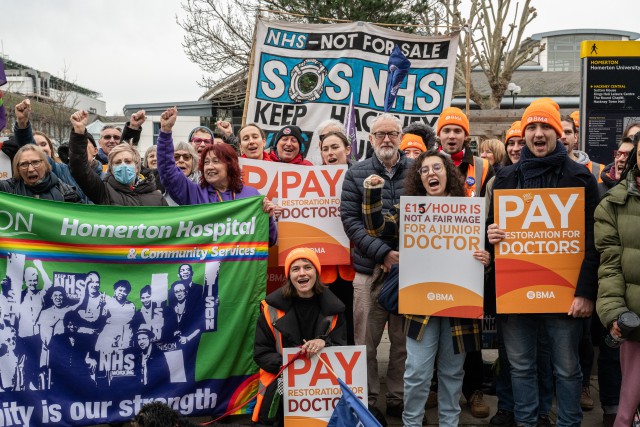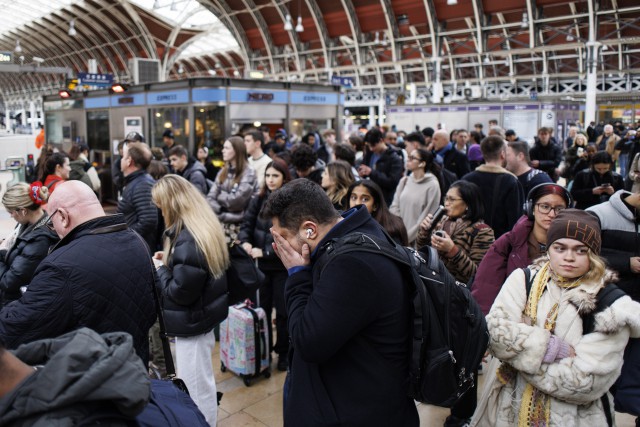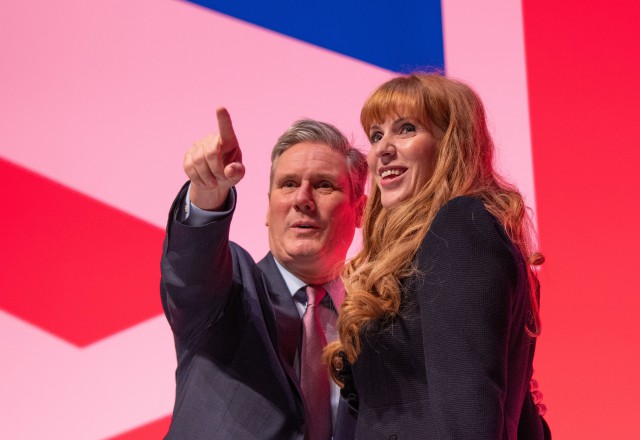Sir Keir Starmer's Pledge
Sir Keir Starmer, leader of the Labour Party, has promised to give trade unions more power if his party wins the General Election. This has raised concerns that the UK could be hit by even more strikes in the coming year. Starmer plans to overturn laws that currently limit the authority of union leaders within his first 100 days as Prime Minister.
Fears of Mass Strikes
Critics argue that Starmer's left-wing agenda will exacerbate the situation, leaving the country at the mercy of militant union leaders. They believe that this could potentially lead to a return of the mass strikes that plagued the UK in the 1970s.
Collective Bargaining
One aspect of Starmer's plan is to introduce sector collective bargaining, where pay and conditions are negotiated for all employees in a particular industry. This could pave the way for strikes across entire sectors and result in significant pay demands.
Increased Power for Union Leaders
Under Starmer's proposals, union leaders would be able to order their members to go on strike even if a majority of members do not support the action. Additionally, new laws that require a minimum service on strike days in schools, hospitals, and railways would be scrapped.

Critics Sound the Alarm
Former Tory Party leaders, including Lord Michael Howard and Sir Iain Duncan Smith, have voiced their concerns about the potential consequences of Labour's plans. They warn that granting unions more power could bring the country to a standstill and lead to economic chaos.
Labour Divisions
The push to strengthen unions has caused tension within the Labour Party itself. Deputy leader Angela Rayner, who leads the "New Deal for Working People" initiative, is committed to implementing these changes. However, Shadow Chancellor Rachel Reeves, who has been courting support from the financial sector, may clash with Rayner on this issue.
Impact on Social Care
One key aspect of Rayner's plan is to introduce sector collective bargaining in adult social care, potentially giving unions the power to negotiate pay and conditions for 1.5 million care workers. However, this could put pressure on the government to allocate billions of pounds to fund these pay increases or risk bankrupting local councils.
Union Recruitment and Enforcement
Labour also aims to give unions greater powers to enter workplaces for recruitment and organizing purposes. A new organization will be established to enforce these enhanced union powers, with extensive authority to inspect workplaces and initiate legal action.

Tory Party Response
The Conservative Party has criticized Labour's close ties to the unions and pledged to take a tougher stance on striking unions. They argue that the Labour Party remains beholden to union influence, harking back to the 1970s when union leaders had significant control over the party.
Business Leaders' Concerns
The head of the Confederation of British Industry, a lobbying group, has called on Labour to soften its stance on worker rights. However, unions continue to be major donors to the Labour Party, with nearly £22 million in donations received in 2023 alone.
Labour's Response
Labour has defended its plans, stating that they will benefit both workers and businesses. The party argues that their proposals will lead to higher productivity, reduced sick leave, and improved stability for workers. They also claim that the Conservatives have failed to address the needs of working people for the past 14 years.
Note: This article has been rewritten for a UK audience and is not an original piece from Fox News.









